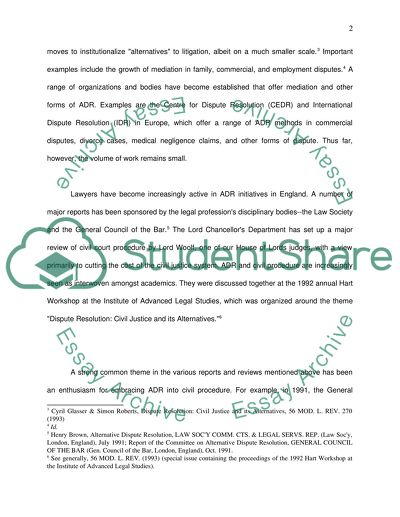Cite this document
(“Evaluate the purpose and practice of Alternative Dispute Resolution Essay”, n.d.)
Evaluate the purpose and practice of Alternative Dispute Resolution Essay. Retrieved from https://studentshare.org/miscellaneous/1536263-evaluate-the-purpose-and-practice-of-alternative-dispute-resolution-and-discuss-how-successful-adr-has-been-within-the-english-legal-system
Evaluate the purpose and practice of Alternative Dispute Resolution Essay. Retrieved from https://studentshare.org/miscellaneous/1536263-evaluate-the-purpose-and-practice-of-alternative-dispute-resolution-and-discuss-how-successful-adr-has-been-within-the-english-legal-system
(Evaluate the Purpose and Practice of Alternative Dispute Resolution Essay)
Evaluate the Purpose and Practice of Alternative Dispute Resolution Essay. https://studentshare.org/miscellaneous/1536263-evaluate-the-purpose-and-practice-of-alternative-dispute-resolution-and-discuss-how-successful-adr-has-been-within-the-english-legal-system.
Evaluate the Purpose and Practice of Alternative Dispute Resolution Essay. https://studentshare.org/miscellaneous/1536263-evaluate-the-purpose-and-practice-of-alternative-dispute-resolution-and-discuss-how-successful-adr-has-been-within-the-english-legal-system.
“Evaluate the Purpose and Practice of Alternative Dispute Resolution Essay”, n.d. https://studentshare.org/miscellaneous/1536263-evaluate-the-purpose-and-practice-of-alternative-dispute-resolution-and-discuss-how-successful-adr-has-been-within-the-english-legal-system.


